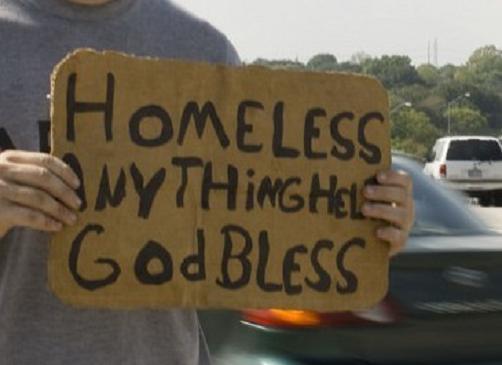latest
Report: Expand rental aid to address Massachusetts housing crisis

By Chris Lisinski
BOSTON – Fewer than half of Massachusetts households eligible to receive state rental aid tap into a mix of available subsidies, a disparity policymakers could address by committing to a massive, multibillion-dollar expansion of rental vouchers, researchers concluded in a new report.
Rolling out an extensive analysis of what would represent a dramatic and costly investment, authors said state government could help hundreds of thousands of families navigate the housing crisis by building out the existing Massachusetts Rental Voucher Program.
Opening up universal access to the program, often referred to as MRVP, for all eligible households would cost about $3.2 billion per year, according to the report published Wednesday by The Boston Foundation.
That’s a hefty price tag — in the fiscal year 2023 state budget, lawmakers and Gov. Charlie Baker appropriated about $154 million toward MRVP — that authors said would require preparation and a “gradual phase-in.” But they argued that a universal voucher option warrants consideration because of the significant impact it would have on homelessness prevention and family budgets.
“Rental assistance helps renters without hurting landlords; it makes housing affordable without tying developers’ hands; and although it is expensive for the state, it doesn’t impose the kinds of hidden costs that come with alternatives like rent control, which can dampen long-term growth and development,” authors wrote in their report. “And while there’s no switch we can flip to open MRVP to all eligible households, there is a way to get from here to there — with lots of places to stop and confirm that we are avoiding unnecessary troubles and providing effective aid.”
“Fifty years ago, we were the first state to create a rental assistance program. Today, we can be the first state to make it work for all in need,” they added.
The Boston Foundation produced the report in conjunction with the Center for State Policy Analysis at Tufts University, Citizens’ Housing and Planning Association (CHAPA), Metro Housing | Boston, the Regional Housing Network of Massachusetts, and the Mass. chapter of the National Association of Housing & Redevelopment Officials.
To be eligible for MRVP, a household needs to earn less than 80 percent of the median income in their area, though researchers said typical recipients in fact earn less than 30 percent of area median income.
Analysts found that about 585,000 Massachusetts households would qualify for rental assistance based on their incomes, but only about 250,000 receive any of a range of available benefits including federal Section 8 vouchers, state and federal public housing, and sub-market housing production.
The roughly $150 million state government currently spends on MRVP covers only about 9,000 vouchers, leaving most who are eligible “locked out” in contrast from other government programs like Medicaid.
“With MRVP and Section 8, you can meet all the eligibility requirements and not even be allowed to join a wait list,” the report said. “Indeed, the regional MRVP wait lists have been closed since 2014. And in the brief window when they were open that year, one organization administering the program received 10,000 applications for 54 vouchers.”
Assuming that a universal voucher expansion would not attract 100 percent takeup, authors estimated it would cost $3.2 billion per year and help support 240,000 new households.
Those figures might swell if greater availability of vouchers encourages people currently living in crowded conditions to move out and seek their own subsidized rental units or attracts lower-income families to move to the Bay State.
“A state investment of this size would make housing support a pillar of the state budget alongside core priorities like funding for public schools and health insurance for low-income residents,” the report said. “Our estimate is also in line with other transformative proposals, like the push for universal pre-school, estimated to cost $5 billion per year.”
Policymakers would also need to take steps to prevent unintended negative consequences, such as a jump in rents fueled by increased demand once more families seek out housing with the aid of vouchers. Authors said the state could focus on incentivizing new construction, loosening zoning rules and setting limits on “unreasonable rent” hikes to manage those risks.
Other options authors flagged include ensuring that MRVP vouchers are not “more desirable” than federal aid, noting that keeping Bay Staters participating in the federal Section 8 program will reduce state costs, and expanding cushions that allow people to maintain their vouchers for a certain period of time if they get pay raises that push them above the eligibility.
The “first step” the report recommended is codifying the voucher program’s core rules in standalone law, rather than reestablishing them annually in the state budget. Authors also said a universal MRVP would fare better with a “more integrated, or even centralized” system of oversight and management, a departure from the current model that uses a combination of regional and local housing authorities.
Organizations that produced the report plan to gather Wednesday morning at Metro Housing|Boston’s Tremont Street office to discuss their findings.







SheriffJohnBrown
December 19, 2022 at 7:01 pm
Cradle to Grave welfare.
Keith Kennedy
December 23, 2022 at 9:54 pm
Keep allowing the indigent to enter the USA seeking Taxpayer funded Housing. ANOTHER Ten MILIONS are here since Biden. The Taxpayers are funding HOTELS to accept recent Illegal Aliens FLOODING the USA. Same for Canada.
k